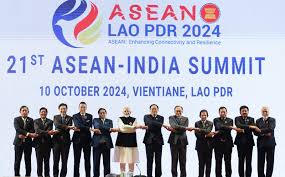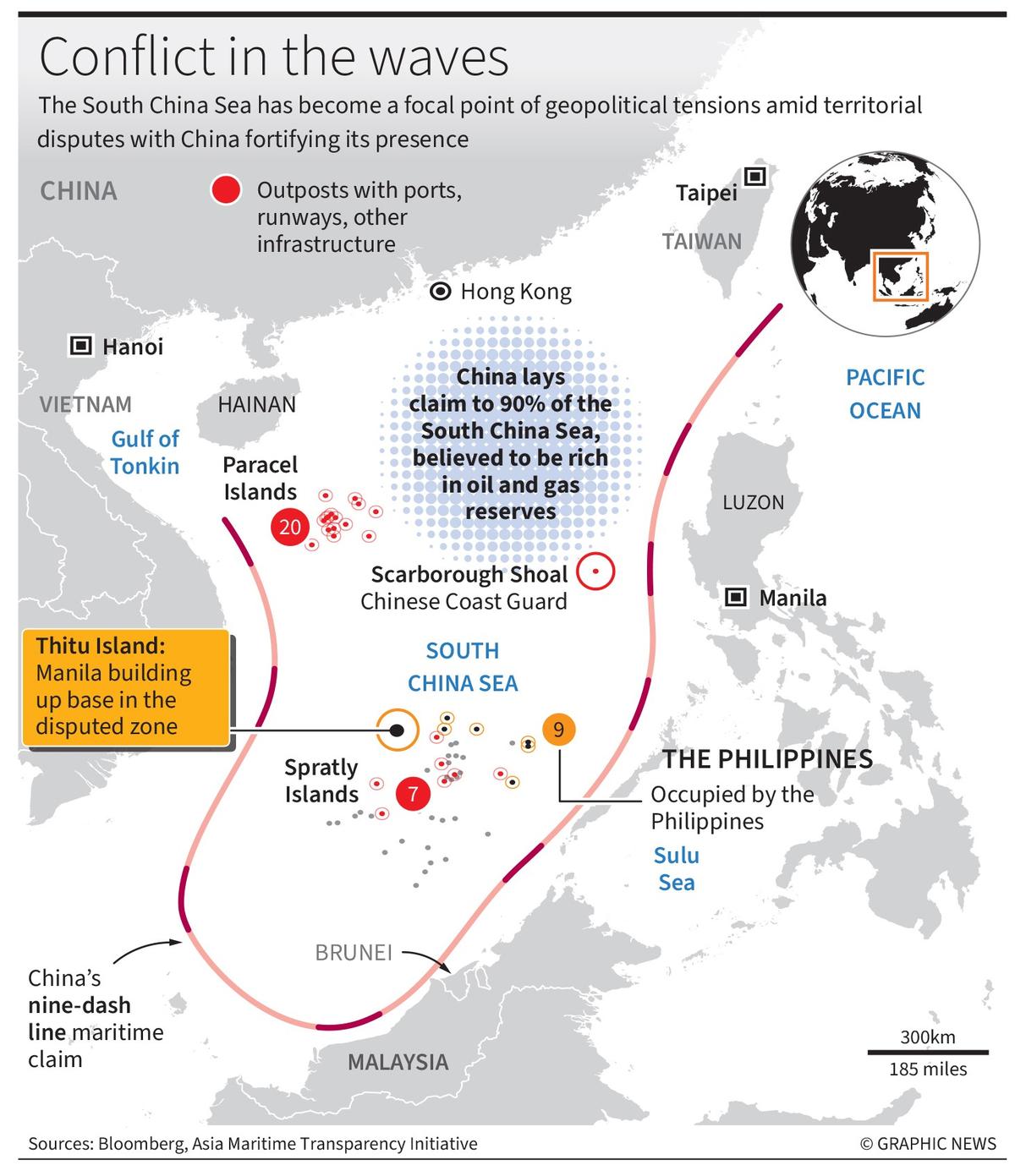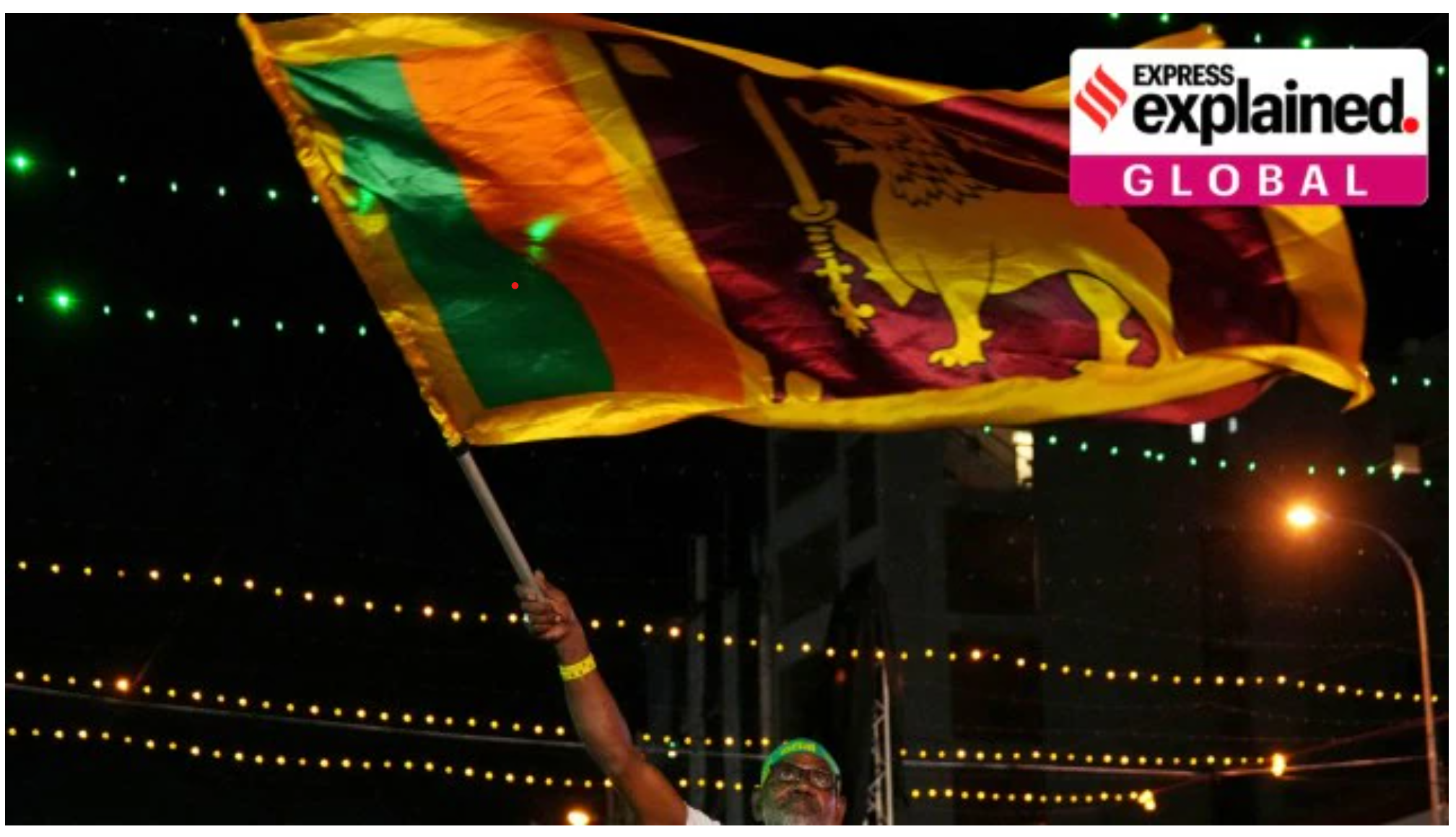Mission Mausam

- 20 Oct 2024
Introduction: The Need for Advanced Weather Forecasting
India is increasingly facing extreme weather events such as flooding and droughts, which have become more frequent and intense in recent years. According to a 2021 study by the Council on Energy, Environment, and Water (CEEW), 40% of districts in India face alternating climatic hazards, where flood-prone areas also experience droughts, and vice versa. Moreover, a 64% increase in heavy rainfall days during the monsoon season has been recorded over the last decade.
Despite these challenges, India’s weather forecasting systems remain underdeveloped, particularly in flood-prone regions. While cyclone-prone areas benefit from comprehensive early warning systems, flood-prone regions are largely under-covered. To address these gaps and to prepare for more frequent climate risks, the Mission Mausam, launched in September 2024, aims to transform India's weather forecasting capabilities.
Key Objectives of Mission Mausam
Mission Mausam focuses on three main pillars:
- Increasing Weather Observation Networks
- Improving Weather Forecasting Models
- Investigating Weather Modification Techniques
This initiative is led by three institutions under the Ministry of Earth Sciences:
- India Meteorological Department (IMD)
- National Centre for Medium Range Weather Forecasting (NCMRWF)
- Indian Institute of Tropical Meteorology (IITM)
The mission is backed by an investment of ?2,000 crore and aims to address the growing complexity of India’s climate challenges.
1. Gaps in India's Current Weather Observation Network
Despite significant advances, India’s existing weather observation system has several gaps, particularly in terms of coverage and data accessibility.
Weather Radar Coverage
India currently operates 39 Doppler Weather Radars (DWRs), but their distribution is not optimal. Key regions that are highly vulnerable to extreme weather events are under-monitored:
- Western Coast: Only 5 radars monitor the entire western coastline, where cyclones are becoming more frequent and intense.
- Urban Centres: Cities like Ahmedabad, Bengaluru, and Jodhpur — which have experienced repeated flooding — lack adequate radar coverage.
Action Required:
- Expand Radar Coverage: Prioritise the installation of weather radars along the western coast and in urban centres with high climate risks.
- Improve Observation Platforms: In addition to radars, install other weather observation platforms such as wind profilers and radiometers to provide more comprehensive data.
Limited Data Access
At present, the data from India’s weather observation network is not fully accessible to researchers and innovators. This limits the ability to develop localised early warning systems and innovative solutions for climate resilience.
Action Required:
- Open Data Access: Make weather data available to researchers, academic institutions, and private sector innovators. This will encourage the development of analytical tools and localized solutions for extreme weather events.
- Global Best Practices: Following the examples of countries like the United States, United Kingdom, and France, which openly share weather data, India can foster innovation and improve its forecasting capabilities.
2. Strengthening Weather Forecasting Models
Improved weather forecasting models are essential for accurately predicting extreme weather events, including heavy rainfall, floods, and cyclones.
Machine Learning and Atmospheric Physics
Mission Mausam will enhance weather forecasting models through:
- Integration of Machine Learning: By incorporating machine learning techniques, India can improve prediction accuracy and lead times.
- Better Understanding of Atmospheric Physics: Improved scientific understanding of the atmosphere can lead to more accurate and reliable weather forecasts.
Action Required:
- Enhance Forecasting Capabilities: Focus on improving long-term and short-term weather predictions, especially for regions prone to extreme weather.
- Incorporate Technology: Leverage advanced technologies, including AI and machine learning, to predict weather patterns more accurately.
3. Improving Communication and Dissemination of Weather Information
Effective communication of weather warnings is essential for timely action by governments, businesses, and citizens.
Enhancing Warning Systems
Currently, the India Meteorological Department (IMD) disseminates weather warnings through various channels, including mobile applications and web portals. However, the effectiveness of these warnings can be improved.
Action Required:
- User-Friendly Warnings: Improve the interface of weather apps and websites, providing users with guidance on how to interpret warnings and take necessary precautions.
- Capacity Building: Create informational videos, media campaigns, and easy-to-understand guides to help citizens act upon warnings effectively.
Wider Use of Localised Decision Tools
Localized decision tools can be used to help communities in specific regions take proactive steps before, during, and after extreme weather events.
Action Required:
- Localized Early Warning Systems: Develop region-specific warning tools that integrate local knowledge with scientific forecasts, making them more effective for local populations.
4. Integrating Mission Mausam with Sectoral Planning
The success of Mission Mausam will depend on its integration with various sectoral policies, particularly in areas such as agriculture, water management, and energy.
Use Cases for Climate-Resilient Sectors
Data from the enhanced weather observation system can be used to:
- Support Agriculture: Weather forecasts can inform crop planning and irrigation management, helping farmers mitigate the impacts of extreme weather events.
- Water Resource Management: Improved forecasting can assist in flood management, water storage, and distribution planning.
- Energy Sector Planning: Accurate weather predictions can help the energy sector plan for weather-related disruptions, such as extreme temperatures or storms that affect power grids.
Action Required:
- Sectoral Integration: Ensure that the weather data generated by Mission Mausam is shared with relevant ministries (e.g., Agriculture, Water Resources, Energy) to develop climate-resilient policies and strategies.
Conclusion: Moving Towards a Climate-Smart India
Mission Mausam is a critical initiative to make India more weather-ready and climate-smart. By improving weather observation networks, enhancing forecasting models, and promoting data-sharing, India can mitigate the impacts of extreme weather events that have become increasingly unpredictable and severe. The success of Mission Mausam will depend on:
- Investing in technology
- Expanding weather coverage
- Engaging local communities and sectors
As India continues to face the challenges posed by climate change, Mission Mausam holds the potential to revolutionize how the country prepares for and responds to extreme weather events, ultimately reducing the toll on lives and livelihoods.
ASEAN SUMMIT

- 11 Oct 2024
In News:
The 21st ASEAN-India Summit took place in Vientiane, Lao PDR, on 10 October 2024. This summit coincided with the 10th anniversary of India’s Act East Policy. Prime Minister Narendra Modi joined ASEAN leaders to assess the progress of the ASEAN-India Comprehensive Strategic Partnership and set the course for future collaboration.
In his address, Prime Minister Modi reaffirmed India's strong support for ASEAN Unity, ASEAN Centrality, and the ASEAN Outlook on the Indo-Pacific. Referring to the 21st century as the “Asian century,” he emphasized the pivotal role of India-ASEAN relations in shaping Asia’s future. He highlighted the success of India’s Act East Policy, noting that in the last decade, trade between India and ASEAN had doubled to over USD 130 billion, with ASEAN becoming one of India’s top trade and investment partners. He also pointed out direct flight connections with seven ASEAN countries, advancements in Fin-tech collaborations, and efforts to restore shared cultural heritage in five ASEAN nations. PM Modi also stressed the importance of completing the review of the ASEAN-India Free Trade Agreement (AITIGA) promptly to unlock greater economic potential. He spoke about the progress made in the India-ASEAN knowledge partnership, particularly through scholarships for ASEAN students at Nalanda University.
In line with the summit’s theme of ‘Enhancing Connectivity and Resilience", PM Modi announced a 10-point plan, which includes:
- Celebrating 2025 as the ASEAN-India Year of Tourism, with USD 5 million allocated for joint initiatives.
- Marking a decade of the Act East Policy through people-centric activities like a Youth Summit, Start-up Festival, Hackathon, Music Festival, ASEAN-India Network of Think Tanks, and Delhi Dialogue.
- Organizing an ASEAN-India Women Scientists Conclave under the ASEAN-India Science and Technology Development Fund.
- Doubling scholarships at Nalanda University and offering new scholarships for ASEAN students at Indian agricultural universities.
- Reviewing the ASEAN-India Trade in Goods Agreement by 2025.
- Enhancing disaster resilience, with India contributing USD 5 million.
- Initiating a new Health Ministers’ track for building health resilience.
- Establishing a regular ASEAN-India Cyber Policy Dialogue to strengthen digital and cyber resilience.
- Hosting a workshop on Green Hydrogen.
- Inviting ASEAN leaders to join the ‘Plant a Tree for Mother’ campaign to promote climate resilience.
During the summit, leaders agreed to develop a new ASEAN-India Plan of Action (2026-2030) to guide future cooperation and adopted two joint statements:
- Joint Statement on Strengthening ASEAN-India Comprehensive Strategic Partnership for Peace, Stability, and Prosperity in the Indo-Pacific, highlighting the role of India’s Act East Policy in advancing the ASEAN-India relationship.
- ASEAN-India Joint Statement on Advancing Digital Transformation, recognizing India’s leadership in digital transformation and embracing a partnership in digital public infrastructure.
Prime Minister Modi expressed his gratitude to the Prime Minister of Laos for successfully hosting the summit and to Singapore for its role as Country Coordinator over the past three years. He looked forward to working with the Philippines, the new Country Coordinator for India.
ABOUT Association of Southeast Asian Nations (ASEAN)
- ASEAN is a political and economic organization focused on fostering economic growth and regional stability among its member countries.
- The member states include Brunei, Cambodia, Indonesia, Laos, Malaysia, Myanmar, the Philippines, Singapore, Thailand, and Vietnam.
- ASEAN was founded in 1967 in Bangkok, Thailand, with the signing of the ASEAN Declaration (Bangkok Declaration) by its original members: Indonesia, Malaysia, the Philippines, Singapore, and Thailand. Brunei Darussalam joined in 1984, followed by Vietnam in 1995, Lao PDR and Myanmar in 1997, and Cambodia in 1999.
ASEAN Summit:
- This is ASEAN’s highest decision-making body, consisting of the heads of state or government of member nations. The summit is held twice a year.
- The first ASEAN Summit took place in 1976 in Bali, Indonesia.
SOUTH CHINA SEA

- 28 Sep 2024
In News:
In recent years, maritime East Asia has emerged as a battleground for intensified power politics, particularly in the East China Sea and the South China Sea. These regions involve complex territorial disputes and geopolitical tensions, particularly concerning China, Japan, Taiwan, and several Southeast Asian nations.
Geographic and Strategic Significance
East China Sea
- Territorial Claims: The East China Sea borders China, Taiwan, Japan, and South Korea, with the Senkaku/Diaoyu islands being a focal point of contention.
- Crises: Multiple crises have erupted over these islands, reflecting deep-seated national interests.
South China Sea
- Key Players: Located between China, Taiwan, and five Southeast Asian countries—Vietnam, Malaysia, Brunei, the Philippines, and Indonesia.
- Flashpoint: This area has become a critical flashpoint in the Indo-Pacific, with China aggressively asserting its claims.
China's Motivations
Naval Exercises and Claims
- Naval Collaboration: China has conducted naval exercises with Russia in the South China Sea, showcasing military capabilities and reinforcing territorial claims.
- Legal Standing: Despite a 2016 ruling by a permanent court of arbitration declaring China's claims to lack legal basis, Beijing has rejected this decision.
Regional Responses to China's Actions
1. Enhancing Defence Capabilities
- Increased Defence Spending: Countries like Japan and the Philippines are significantly boosting their defence budgets, with Japan aiming to double its spending by 2027.
- Acquisition of Technology: The Philippines has acquired anti-ship BrahMos missiles from India as part of its defence enhancement efforts.
2. Addressing Maritime Activities
- Shift in Policy: The Philippines has pivoted from a conciliatory approach to actively publicizing confrontations with Chinese vessels.
- Public Diplomacy: The Philippines employs social media to document and share encounters with Chinese ships, shaping public perceptions.
3. Strengthening Alliances
- U.S. Cooperation: The Philippines, Japan, and South Korea are reinforcing their defence relationships with the U.S., expanding cooperation in various domains including joint exercises.
- Trilateral Meetings: The U.S., Japan, and South Korea have deepened their trilateral cooperation, addressing concerns about unilateral changes to the status quo in the Indo-Pacific.
U.S. Credibility and Strategic Implications
Despite efforts to bolster alliances, concerns remain regarding U.S. credibility and the impact of domestic politics on its international commitments. There is ongoing debate over whether U.S. engagement balances Chinese power or exacerbates tensions.
China’s Sovereignty Perspective
National Security Framework
- Defence White Paper: China's 2019 Defence White Paper emphasizes that the South China Sea islands and Diaoyu Islands are integral parts of its territory.
- Infrastructure Development: China claims its actions are defensive, building infrastructure and conducting patrols, while regional nations view these actions as provocative.
Economic Importance of the Seas
- Maritime Trade Routes: Key maritime trade routes in East Asia traverse these waters, with the Taiwan Strait being a critical choke point.
- Resource Richness: The region contains vast reserves of untapped oil and natural gas, making it economically significant.
China's Aggressive Tactics
Infrastructure and Militarization
- Building Facilities: China is constructing military installations and artificial islands in both the East and South China Seas.
- Conflict with Japan: China has frequently contested Japanese claims, resulting in significant diplomatic and military tensions.
South China Sea Belligerence
- Power Asymmetry: China's navy is the largest in the world, enabling it to project power effectively in the South China Sea.
- Aggressive Maneuvers: Tactics include harassment of resupply missions, ramming vessels, and the use of military-grade lasers.
Recent Escalations in the South China Sea
- Increased Incidents: Since 2022, clashes between China and the Philippines have intensified, especially around Second Thomas Shoal and Sabina Shoal.
- Dangerous Encounters: China's larger Coast Guard vessels pose significant risks during confrontations, raising concerns about potential miscalculations.
Conclusion
The evolving power dynamics in maritime East Asia highlight the interplay of national interests, regional security, and international cooperation. The situation remains fluid, with significant implications for global trade, security, and diplomatic relations. Understanding these complexities is essential for addressing the challenges posed by an assertive China and fostering stability in the region.
SRI LANKA’S PRESIDENTIAL ELECTIONS: IMPORTANCE AND IMPLICATIONS FOR INDIA

- 21 Sep 2024
Overview of the Elections
Sri Lanka is gearing up for its first presidential election since the significant protests of 2022 and an unprecedented economic crisis. Scheduled for September 21, the election comes at a critical juncture for the nation, following the ousting of the Rajapaksa regime.
Context of the Crisis
The protests were ignited by severe economic difficulties, including inflation soaring to 70% and shortages of essential goods like food, fuel, and medicine. While some improvements have been noted, a full recovery remains elusive, with economic concerns at the forefront of voters' minds.
Electoral Landscape
Voting System
- Candidates: 38 candidates are contesting, all men.
- Voting Process: Each of the 17 million eligible voters can select up to three candidates. A candidate needs over 50% of the votes to win outright; otherwise, a run-off will occur between the top two contenders.
India's Strategic Interests
Concerns over Regional Influence
India is closely monitoring the elections due to strategic interests, particularly in countering China's expanding influence in Sri Lanka. The previous administrations have leaned towards China, which has raised concerns in New Delhi.
Key Candidate Positions
- Sajith Premadasa: Historically skeptical of China; supports the implementation of the 13th Amendment for provincial power devolution, aligning with Indian interests.
- Anura Kumara Dissanayake: Has a pro-China background and has criticized Indian business interests in Sri Lanka, raising potential tensions with India.
Economic Recovery and Voter Sentiment
Current Economic Situation
Post-crisis, the economy has shown signs of stabilization, with no food or fuel shortages and reduced inflation. However, many Sri Lankans continue to struggle financially, feeling the impact of increased taxes and electricity rates mandated by the IMF bailout conditions.
Voter Priorities
The election marks a shift in voter focus, with economic recovery taking precedence over traditional ethnic or religious considerations. Skepticism about political promises is high, as citizens recall previous failures to deliver on reforms.
Conclusion: The Path Ahead
As Sri Lanka heads into this pivotal election, the outcome will be crucial for both the nation and its international relations, particularly with India. The next president's ability to navigate economic recovery and regional dynamics will significantly influence Sri Lanka's trajectory.
